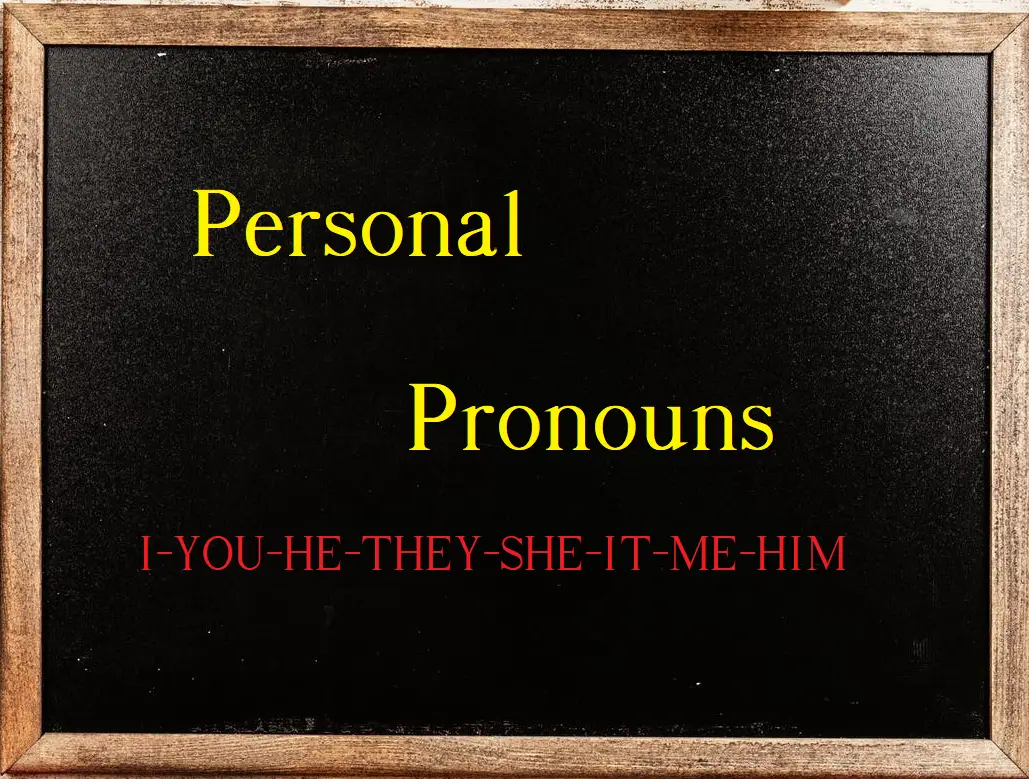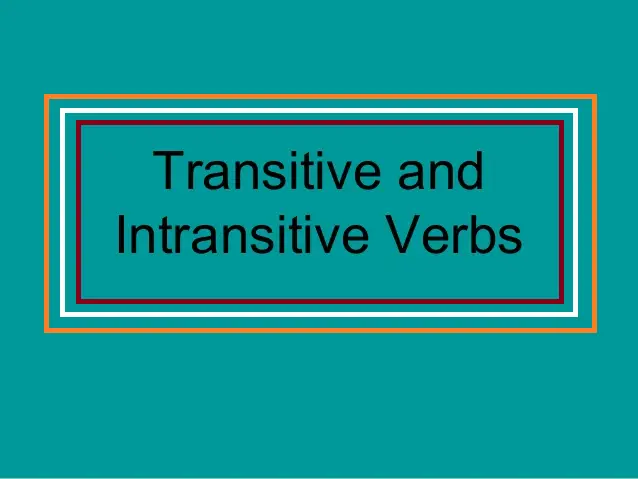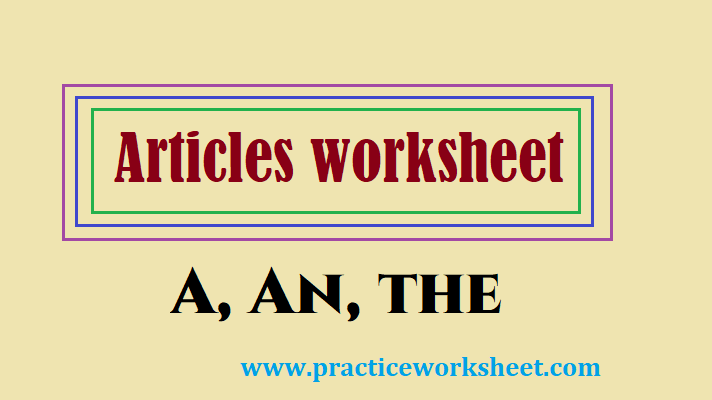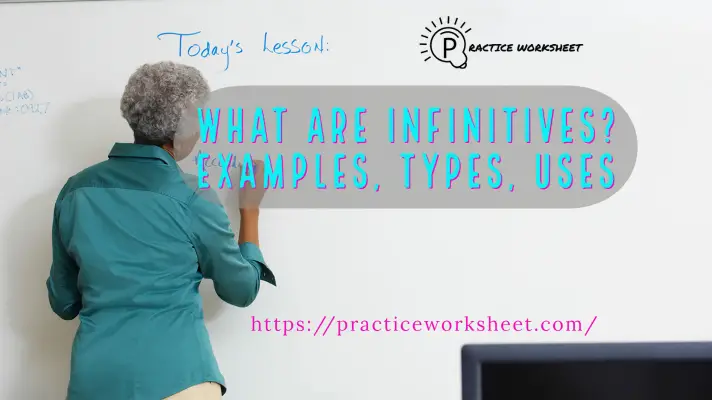Definition of Indefinite Pronouns
Indefinite pronouns refer to a person or thing in a general open way. It does not refer to any specific person, thing, or amount already named. The idea is not definite. So, indefinite pronouns are defined as the pronouns that are used in place of nouns that are not distinctly specified in the sentence. Some of the typical examples of indefinite pronouns are all, another, whatever, any, anybody, anyone, all, anything, each, many, everybody, everyone, everything, few, many, nobody, none, one, several, some, somebody, someone, etc.
Indefinite pronouns can are either be singular or plural. Also, some of the indefinite pronouns can be singular in one context and plural in another.
Types of Indefinite Pronouns
There are two main types of indefinite pronouns:
The first type of indefinite pronouns consists of compounds having a second part: -one, -body, -thing linked to any, some, no, and every. Example: Everone, Someone, No one, Somebody, Something, Nothing, etc.
The second class of indefinite pronouns is a much larger group of determiners that can be used as pronouns and which can be followed by an of construction. Examples include few, most, little, many, more, either, some, several, any, all, least, none, etc.
List of Indefinite Pronouns
There are quite a few indefinite pronouns. Some of those are listed in the table below:
| People or Things | Singular Indefinite Pronouns | Plural Indefinite Pronouns | Singular or Plural |
| Either People of Things | One, Another, Each, Other, Either | Few, Both, Fewer, Others, Many, Several | All, More, Plenty, Any, Most, None, Neither, Some |
| People Only | Anyone, Everyone, Anybody, Everybody, Noone, Nobody, Someone, Somebody, Whoever, Whomever, Whosoever, Whomsoever, You | They | |
| Things Only | Much, Little, Anything, Everything, Enough, Less, This, Whatever, Such, Whichever, Nothing, Something | Such |
Indefinite Pronoun Examples and Rules
Rules and Examples of Indefinite Pronouns: Singular vs Plural
Some indefinite pronouns like everything, much, everyone, etc refer to more than one but are considered singular. The reason is that they function as a single unit similar to collective nouns. For this reason, these types of indefinite pronouns take a singular verb. For example:
- Everything was finished when we reached there.
- Everyone is asking for you.
- I hope everything is good at your end.
Plural indefinite pronouns have a plural agreement with their verbs. Examples include: Many are in agreement with their colleagues.
Note that, depending on the usage context, some pronouns can act either as singular or plural. For example:
- All are welcome to attend the party (plural)
- All is well at my end (singular)
Rules and Examples of Indefinite Pronouns: People vs Things
An indefinite pronoun can identify both people and things. Some indefinite pronouns are specifically used for people, some are specifically for things. Also, there are some indefinite pronouns that can be used for either of them. For example, the following indefinite pronouns represent people:
- Would anyone like a cup of tea? (people)
- I don’t feel anybody is attending the meeting. (people).
- I can’t believe no one came to meet me.
- Whoever would like to join the game is welcome.
In a similar manner the following indefinite pronouns represent things:
- Do you like to add something? (things)
- The less is known, the better.
- Ram felt Rahim has had enough.
- I will just have whatever you are having.
Again, the following examples of indefinite pronouns can be used to refer to either people or things:
- One was short and as compared to the other. (One may be people or things).
- Take both if you wish to.
- I feel either will do for now.
- All are accounted for.
Cardinal and ordinal numbers can also be used as indefinite pronouns. For example,
- I was woken at five every morning by those birds.
- Julie, the third of our daughters, is the brightest.
Note that there are no significant differences in meaning between indefinite pronouns ending in -body and those ending in -one. However, somebody, anybody, nobody is used more frequently in informal contexts. When used as subjects, these indefinite pronouns usually take a singular, not a plural verb. Example: “Is nobody interested?” However, when pronouns are used to refer to these words, plural forms are generally used. Example: “Someone has lost their ticket.”
Indefinite Pronoun Worksheets
It’s time to solve the following indefinite pronoun worksheets and exercises.
Q1. Fill in the blanks with indefinite pronouns to form a meaningful sentence?
- I saw ………….. at the airport who is not well known to me.
- It’s raining heavily and ……………. is inside the room.
- Can you recall …………………that we learnt yesterday.
- There is ………………….in the fridge. So, go to the nearby market to buy………….
- It’s 1.00 am in my watch and I couldn’t find ……….. to talk to in the road.
- ………….. is staring at me and It’s so embarrassing.
- I don’t know …………… about it.
- It’s too dark outside and I can’t see ………….
Q2. Choose the correct indefinite pronouns to complete the sentence.
- (Everybody/Somebody/Anybody) needs friends.
- Swarnali knows (anything/something/everything) about painting.
- Uttam always goes (everywhere/somewhere/anywhere) with his car.
- There is (somebody/anybody/nobody) at the classroom as the school is closed.
- It seems there is (anybody/nobody/everybody) inside the house but (somebody/nobody/everybody) responded.
- I couldn’t eat (something/anything/everything) in the restaurant as the food was too salty.
- It’s too hot and Sumita wants to eat (everything/something/anything) cold.
- Have you seen my spectacle (anywhere/nowhere/everywhere)?

![Singular and Plural Nouns: Definition, Rules, Examples, and Worksheets [With PDF] Singular and Plural Nouns](https://practiceworksheet.com/wp-content/uploads/2020/11/Singular-and-Plural-Nouns.png)

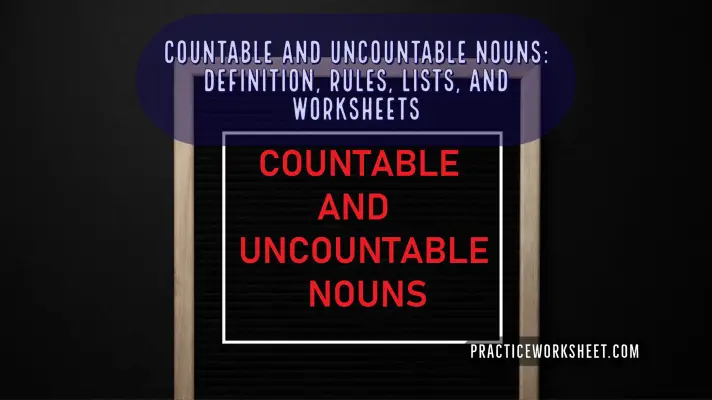
![Collective Nouns: Definition, Examples, and Worksheet [With PDF] Collective Nouns Worksheet](https://practiceworksheet.com/wp-content/uploads/2020/03/Collective-Nouns-Worksheet.png)
